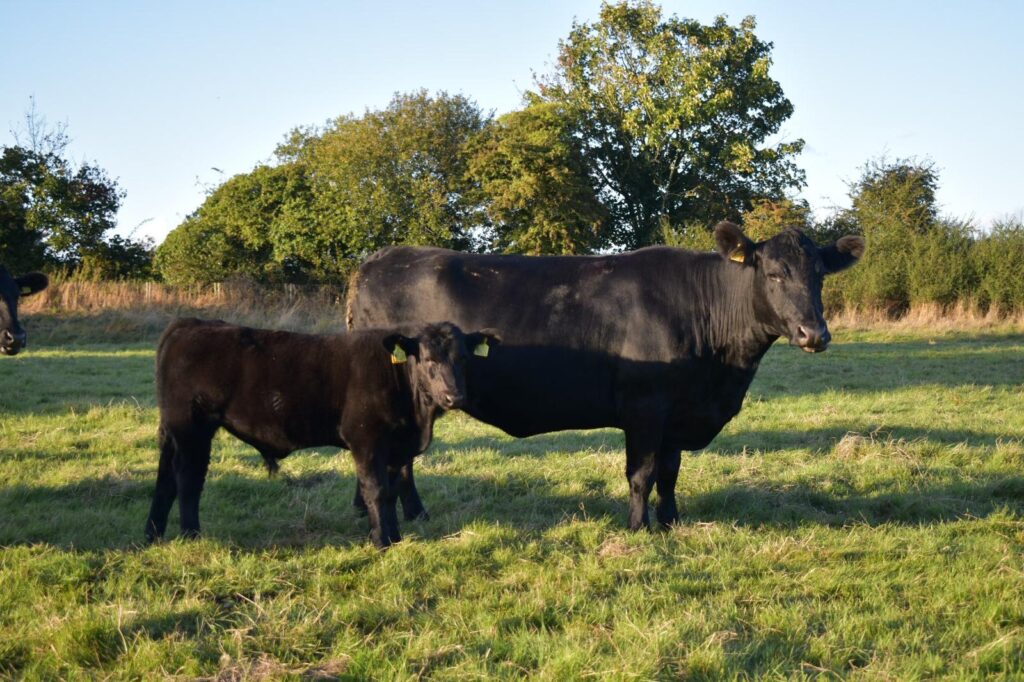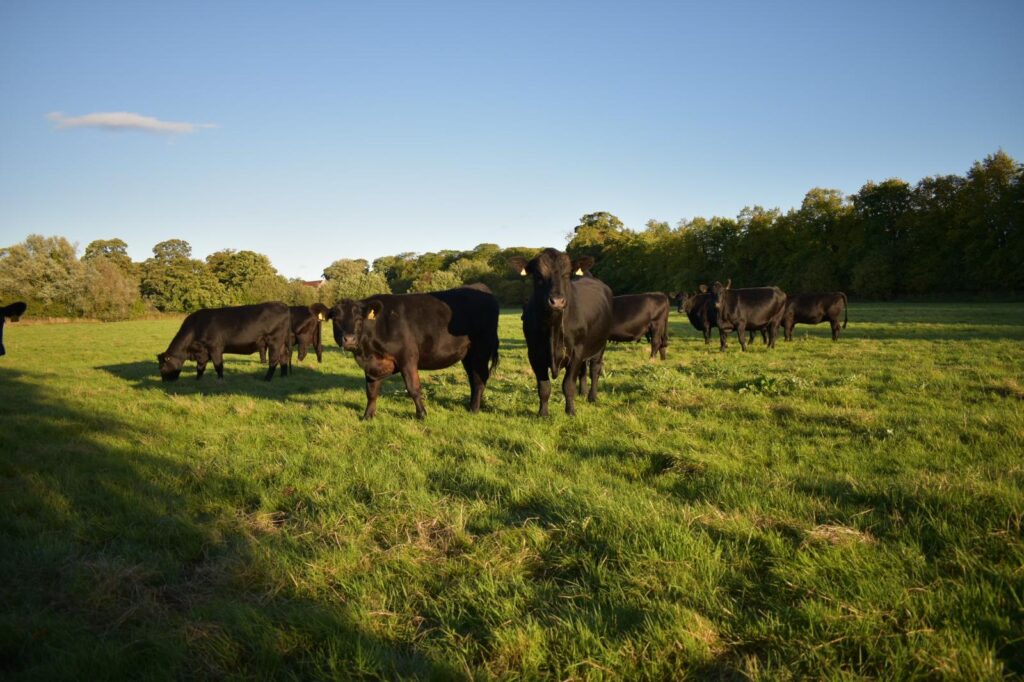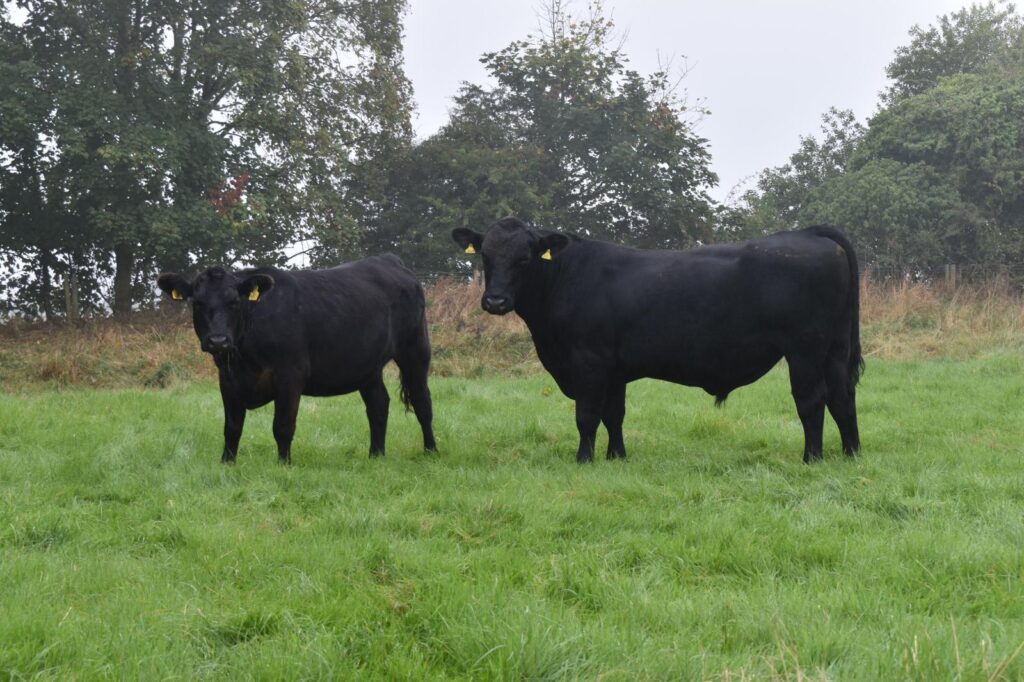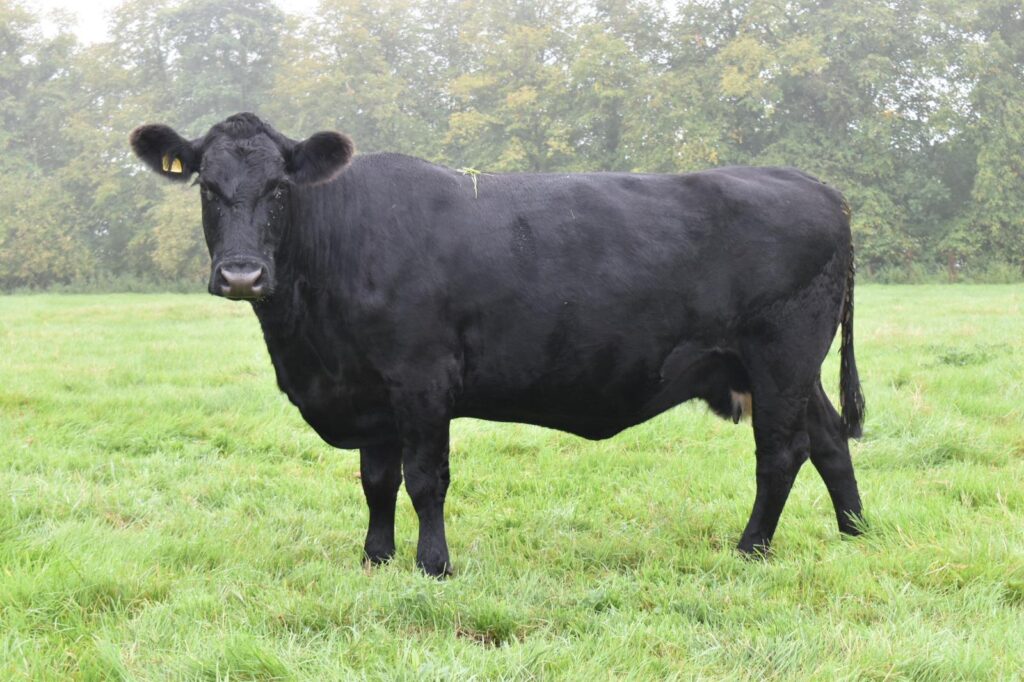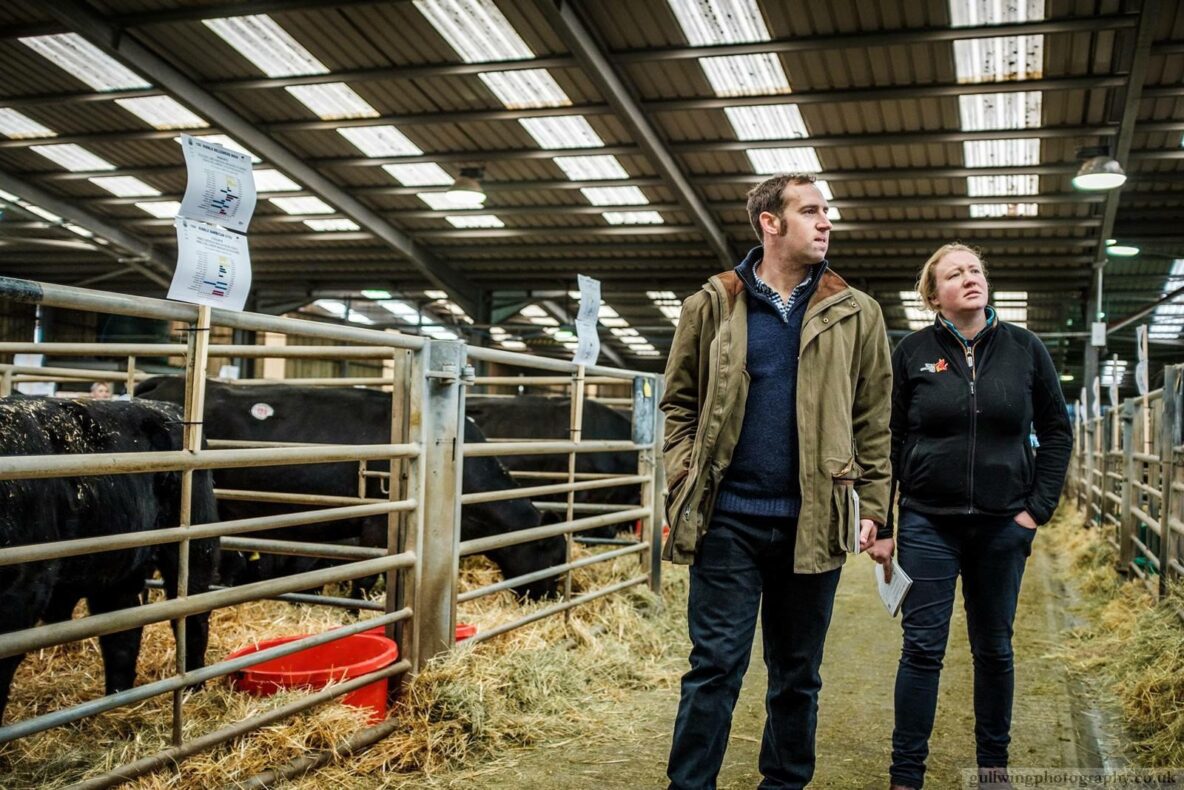A focus on efficiency and achieving market premiums led to an East Yorkshire couple establishing an Aberdeen-Angus herd. We found out more about the farm business and how it has grown to become a supplier of breeding bulls to farmers in the region.
East Yorkshire couple Robert and Davina March established their Abbeywold herd of pedigree Aberdeen-Angus cattle in 2018.
The married couple, who both work full-time off the farm, made the move into keeping Aberdeen-Angus after a re-think of the farming strategy at Gatehouse Farm, near Driffield.
The farm is run alongside Davina’s parents and comprises 70 acres of permanent pasture with one third owned, and the remainder rented.
Davina, who works as a rural surveyor, says the change in policy arose from concerns about the consequences of Brexit on the farm’s sheep enterprise.
“We were very worried about the impact of Brexit on the sheep market, so we started looking at introducing cattle to the farm,” adds Davina.
“The grass that is available to us is fairly traditional, permanent pasture, managed under Agri Environment Schemes and the Sustainable Farming Incentive Scheme so we were looking for a breed of cattle that would fit into our system.”
At the time the farm was home to a flock of 60 Lleyn cross Texel ewes, however the flock currently stands at 40 ewes, and they are in the process of converting to pure bred North County Cheviot Park ewes.
“We wanted to increase the size and weight of lambs, and the Cheviot Parks help with this, and being hardier can thrive on the traditional grasses that we have on the farm,” explains Davina.
After deciding to introduce cattle to the farm, the couple did research to determine what breed would be most suitable for them.
“We were looking for an animal that could finish off grass but something that was also a brand; we wanted to be confident that there was a strong market for both breeding stock and meat,” says Davina.
With the couple both having jobs outside of the farm business and sometimes having to work alone with the cattle, ease of management and handleability was also vital.
“The cattle needed to be relatively straightforward to handle, not have horns, and be a manageable size.”
She says the couple considered various breeds, including Herefords and Stablisers, before settling on Aberdeen-Angus.
Robert March, who owns Selby Bolt and Nut, a hardware, fixings, and fastenings business in York, says a key draw to Aberdeen-Angus was the fact the breed offers improved margins due to their ability to thrive off grass and attract a premium.
He adds: “We also liked the fact that the inputs required for Aberdeen-Angus cattle are a lot lower than other breeds.”
A trip to the Royal Highland Show, and a visit to the Aberdeen-Angus Cattle Society’s exhibit at the event, cemented the decision to go for Aberdeen-Angus and the couple decided to secure their foundation females from the dispersal sale of Henry Rowntree’s Lancashire-based Ribble herd in 2018.
Davina says: “The herd held a couple of open days in advance of the sale, and we went to one to have a look around.
“We really liked some of the cows and we marked up all the ones we were interested in. When we went to the sale we managed to buy an in-calf cow with a heifer calf at foot, and two in-calf heifers.”
The herd now stands at 16 cows and a senior stock bull and home bred junior stock bull and the current focus is on producing breeding stock to sell to other pedigree herds, commercial beef producers and dairy herds.
Robert says in the first few years of having cattle, everything except young heifers were housed during the winter. However, young bulls are now also outwintered and they are performing very well on this system.
Davina adds: “We calve in April and May and our system is very much grass-based and forage-based when they’re in during the winter.”
In the early days, a number of AI bulls were used to maximise the potential of the herd however in recent years a stock bull – Airedale PrairieBoy – was purchased for his genetic potential and a home-bred bull by Rawburn Boss Hogg is also used on heifers.
Since establishing the herd, all heifers have been retained to build numbers and all breeding bulls, with the exception of the one being used on the heifers, have been sold off farm.
The couple says the breed has delivered economic and efficiency benefits for them.
Davina says: “We’re definitely getting a premium from selling the bulls because we find people who might traditionally have used a continental bull, are buying Aberdeen-Angus, especially to put on their heifers for the first time due to being naturally easy calving.
“And for us they’re efficient to keep because they’re generally good mothers, we have found the calves want to thrive so there has been limited intervention required.”
Robert says this is especially important because time is a precious commodity for the couple due to their off-farm work commitments.
He adds: “As well as having good maternal traits, they’re good-natured and this is important if I’m not available and Davina has to handle them on her own. You don’t want something that’s difficult to handle.”
Going forward, the couple plans to keep growing cattle numbers and continue producing breeding bulls with a focus on producing easy fleshing, efficient, low input Aberdeen-Angus cattle.
Longer term they also plan to tap into the consumer market and attract some of the premium prices achieved for Aberdeen-Angus beef through starting a meat box enterprise from the farm.
